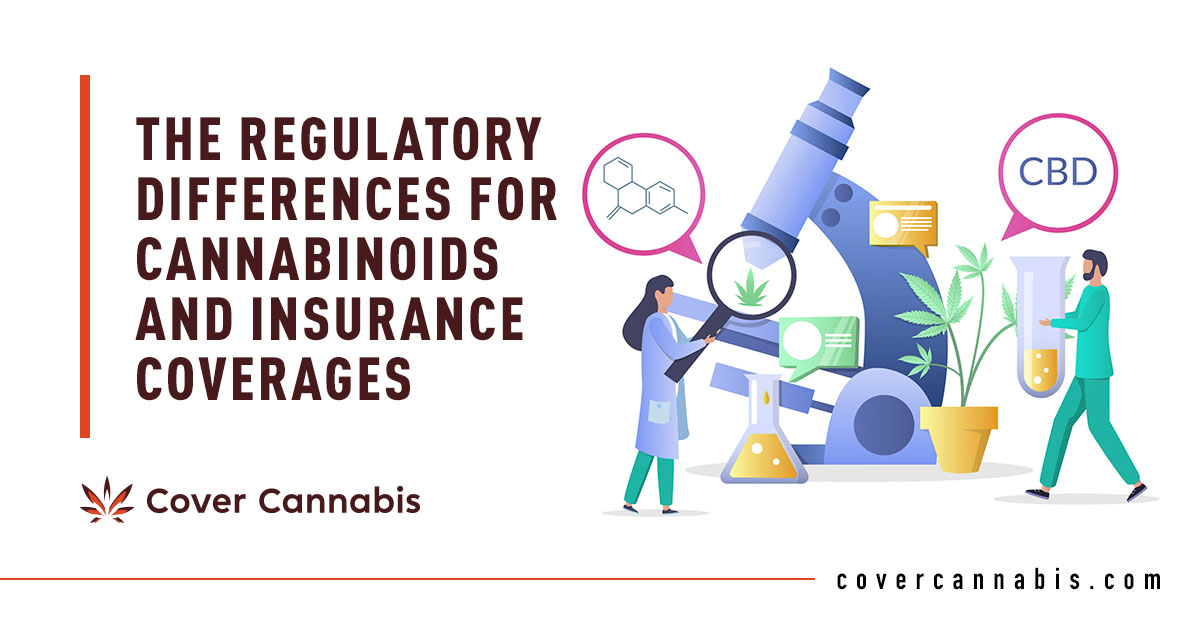


You work on your cannabis business each day, and because you know that at any moment anything can happen, you make sure that you have the proper insurance coverage. However, with the regulations and laws surrounding cannabis products, it’s hard to be certain that you have enough.
When purchasing insurance, it’s important to know that cannabinoids are present in your product and the plant and will have an impact as to whether you can have your cannabis business insured.
There are two major categories of cannabinoids; endocannabinoids, which is made in the body and phytocannabinoids, which are cannabinoids made from plants. Cannabinoids can also be manufactured synthetically in labs but It’s uncommon.
Endocannabinoid is made by the human body as part of the endocannabinoid system. They function primarily as neurotransmitters that affects a number of physiological processes to help the body maintain a healthy balance, or homeostasis.
Phytocannabinoids are created naturally by plants like hemp and cannabis. When it’s consumed, these phytocannabinoids interact with the endocannabinoid system and has a wide range of effects to the human body.
It is these phytocannabinoids that make medical and recreational cannabis and CBD valuable as consumer products.
1. THC
When THC is the topic, it’s almost always the delta-9-tetrahydrocannabinol. This is the potent form of THC found in abundance in cannabis plants. THC is known as the cannabinoid that produces the “high” or the euphoric sensation. The Drug Enforcement Administration (DEA) continues to list cannabis as a Schedule I drug, making it illegal on a federal level.
2. CBD
Also known as cannabidiol, CBD is derived directly from hemp, and as long as the THC levels in the hemp product is less than 0.3%., it’s allowed to be sold nationally as part of the health and wellness market.
CBD can also be extracted from THC plants which have a higher THC ratio of 0.3%. These products are only sold through dispensaries in states where cannabis is legal.
3. Delta – 8
Delta-8 is a less potent version of the delta-9 THC and can be processed from hemp. It’s being seen as a viable alternative to high THC cannabis. As of today, delta-8 THC happens to be in the regulatory grey area. Cannabis legalization advocates are claiming that since delta-8 comes from hemp, it is protected under hemp’s legalization through the 2018 Farm Bill. It is for this reason that securing insurance for delta-8 THC products can be difficult.
Most businesses that are into cultivation, manufacturing, processing, distribution, and the retail end of cannabis products which contains CBD can be protected by common cannabis insurance policies. This is also the same with THC products when sold within legal cannabis markets.
And not all cannabinoids are created equal, for example: delta-8 THC, due to its current state of regulatory uncertainty. You must remember to check the eligibility for insurance coverage to see what’s right for you.
If you’re looking for your cannabis business to have the optimal insurance coverages, Cover Cannabis can help. To get more information about comprehensive insurance policies for the cannabis industry, contact Cover Cannabis now!